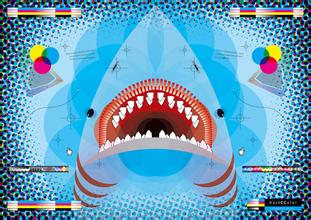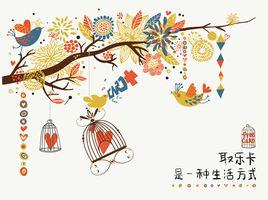Introduction to the unique flavor and taste of Indonesian civet coffee manor area
In August 2005, the Indonesian government reached a peace agreement with the separatist group Aceh Independence Movement. In July 2006, the Indonesian Congress passed the Aceh Management Law. In December 2006, Aceh held local elections, and former leaders of the "Asian independence movement", Irvandi Yusuf (Irwandi Yusuf) and Mohamed Nazar (Muhammad Nazar), were elected governors and vice governors. In April 2012, former leaders of the Aceh Independence Army, Zaini Abdullah and Muzakir Manaf, were elected provincial governors and vice governors for a term of office until August 2017, when the Indonesian government reached a peace agreement with the separatist organization of the Aceh Independence Movement. In July 2006, the Indonesian Congress passed the Aceh Management Law. In December 2006, Aceh held local elections, and former leaders of the "Asian independence movement", Irvandi Yusuf (Irwandi Yusuf) and Mohamed Nazar (Muhammad Nazar), were elected governors and vice governors. In April 2012, former leaders of the Aceh Independence Army, Zaini Abdullah and Muzakir Manaf, were elected governors and vice governors until March 2017, when Indonesian President Susilo Bambang Yudhoyono signed Presidential decision No. 12 of 2014, formally repealing Circular No. 6 of 1967 and renaming ** (cina) to "China". Circular No. 6 of 1967, a product of the era of former Indonesian President Suharto, contains discrimination and insult to the national dignity and personality of China and the Chinese. The local Chinese said that the discriminatory terms against China and Chinese for more than 40 years will be gone forever, which is a manifestation of Indonesia's democratic political progress. Medan is the capital of North Sumatra province, with an urban area of 342 square meters and a population of about 1.8 million. It is the third largest city in Indonesia. Bordering the Strait of Malacca, it is the west gate of Indonesia's foreign trade and one of the main entry and exit ports for domestic and foreign tourists. The establishment of the economic growth triangle in Indonesia, Malaysia and Thailand has strengthened its position as the development center of Jiangsu Province and northern Indonesia. it has promoted the rapid development of the city's small industries such as food processing, textile industry, leather goods, chemical industry, building materials, metals and means of transportation. The city has a clean appearance, shady trees and a pleasant climate. The Sultan Palace in the city was built in 1888 in Indonesia, located in southeastern Asia, across the equator, bordering Papua New Guinea, East Timor and Malaysia, and across the sea from Thailand, Singapore, the Philippines and Australia.
Indonesia crosses the equator (12 °S-7 °N), and more than 70% of its territory is located in the southern hemisphere, so it is the largest country in the southern hemisphere of Asia (Timor-Leste is also a southern hemisphere country). With longitudes ranging from 96 °E to 140 °E, with an east-west length of more than 5500 km, it is the most extensive Asian country except China.
Tim Carman, a food columnist for the Washington Post, commented on Kopi Luwak sold in the United States and concluded that "it tastes like Folger coffee." It's like rotten, lifeless taste. It's like petrified dinosaur shit in bath water. I can't finish it. "
Kopi Luwak, produced in Indonesia, is one of the most expensive coffee in the world. Indonesia grows a lot of coffee crops, including wild animals called civets, omnivores, pointed mouths and dark gray fur. The favorite food is fresh coffee beans, which are fermented and digested in the body and eventually excreted by cats. Feces are grains of coffee beans and become the most expensive feces in the world. Because the quantity is very rare, so the price is very expensive. Musk cats are distributed in Indo-China, India (northeast), Bangladesh, Bhutan, Sikkim, Nepal and Kashmir, but only Sumatran civets, or Indonesian civets, are the first to introduce Kopi Luwak coffee to the United States. Mountanos (M.P. Mountanos) pointed out that when they heard about this kind of internally fermented coffee, they thought it was a joke of the industry, but did not take it seriously. Later, when I saw a special report on Kopi Luwak in National Geographic, I became interested in her. it took seven years to find a stable source of supply and began to introduce a small amount to the United States. What's the flavor of this coffee? Generally speaking, Indonesian coffee has the taste of mud and traditional Chinese medicine, and its consistency is the highest in all continents, but Kopi Luwak has a stronger taste and consistency, which is almost close to syrup, and its flavor is very special. If you don't like Indonesian coffee in the first place, you must hate Kopi Luwak even more. If you prefer the fishy smell of aged beans, you may love this alternative coffee. Experts who have tasted Kopi Luwak have put forward a polarized evaluation, and some people compare it to the best coffee in the world. Although it is the best, but willing to spend thousands of yuan to drink a cup of Kopi Luwak, that is, personal preference 1. Indonesians remove the silver-gray film on the appearance of coffee beans, rinse them with water, dry them in the sun, and stir-fry them to become cat poop coffee beans.
2. Only about 150 grams of coffee beans can be extracted from a jin of civets' feces, which will cause 20% loss in the roasting process. Due to the unique raw materials and production process, this kind of coffee can be said to be very rare. No more than 400 kilograms of coffee beans are supplied worldwide every year.
3. Traditionally, the coffee fruit is washed or sun-treated to remove the excess parts and take out the coffee beans, but Luwak obtains the coffee beans by using its natural fermentation in the civets, so it has a unique flavor.

Important Notice :
前街咖啡 FrontStreet Coffee has moved to new addredd:
FrontStreet Coffee Address: 315,Donghua East Road,GuangZhou
Tel:020 38364473
- Prev

Tanzania Coffee Flavor with excellent taste introduction to boutique coffee in manor producing area
Coffee is like the simple, frank and enthusiastic national character of Tanzania. Its refreshing acidity and medium mellowness complement sweet citrus and floral aromas. You can see that different ethnic groups produce different flavors of coffee, while the same land breeds coffee trees and people at the same time. Tanzania's main coffee producing area is located at the foot of Mount Kilimanjaro, which is rich in volcanic soil.
- Next

Introduction to the characteristics of Peruvian Coffee Organic Coffee Flavor and Taste Manor
After peaceful negotiations between the two sides in 1929, Peru took back Tacona.
Related
- Detailed explanation of Jadeite planting Land in Panamanian Jadeite Manor introduction to the grading system of Jadeite competitive bidding, Red bid, Green bid and Rose Summer
- Story of Coffee planting in Brenka region of Costa Rica Stonehenge Manor anaerobic heavy honey treatment of flavor mouth
- What's on the barrel of Blue Mountain Coffee beans?
- Can American coffee also pull flowers? How to use hot American style to pull out a good-looking pattern?
- Can you make a cold extract with coffee beans? What is the right proportion for cold-extracted coffee formula?
- Indonesian PWN Gold Mandrine Coffee Origin Features Flavor How to Chong? Mandolin coffee is American.
- A brief introduction to the flavor characteristics of Brazilian yellow bourbon coffee beans
- What is the effect of different water quality on the flavor of cold-extracted coffee? What kind of water is best for brewing coffee?
- Why do you think of Rose Summer whenever you mention Panamanian coffee?
- Introduction to the characteristics of authentic blue mountain coffee bean producing areas? What is the CIB Coffee Authority in Jamaica?

